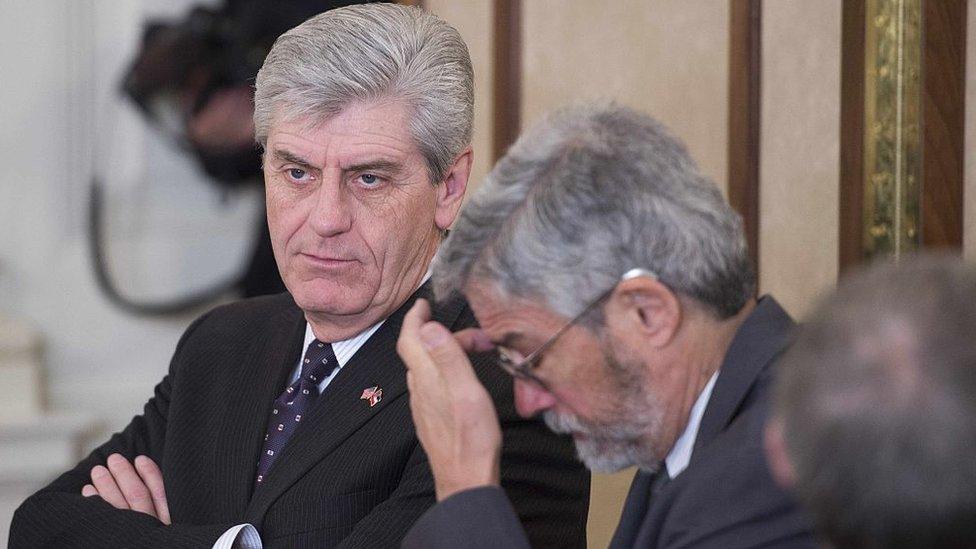Mississippi's strict abortion law temporarily blocked
- Published

Mississippi Governor Phil Bryant signed the tightest abortion restrictions for pregnant women into law on Monday
A US judge has temporarily blocked a Mississippi state law enacting the tightest restrictions on abortion in the country a day after it was signed.
Judge Carlton Reeves delayed the bill, which bans most abortions after 15 weeks, from taking effect for 10 days while he hears more arguments.
Critics say the ban, which makes no exceptions for rape or incest, is unconstitutional.
Mississippi previously banned abortions from 20 weeks.
Mr Reeves wrote that the new law "threatens immediate, irreparable harm to Mississippians' abilities to control their 'destiny and... body'".
"A brief delay in enforcing a law of dubious constitutionality does not outweigh that harm, and in fact serves the public's interest in preserving the freedom guaranteed by the United States Constitution," the judge wrote.
The measure was enacted on Monday by Republican Governor Phil Bryant, who says he wants the southern state to be "the safest place in America for an unborn child".
He said the judges' ruling to delay the new abortion law was disappointing.
The Pink House: The last abortion clinic in Mississippi
"House Bill 1510 protects maternal health and will further our efforts to make Mississippi the safest place in America for an unborn child," Mr Bryant said in a public statement.
"We are confident in its constitutionality and look forward to vigorously defending it."
The Center for Reproductive Rights said it had filed a lawsuit to block the new law on behalf of the only abortion clinic in Mississippi, the Jackson Women's Health Organization.
The judge said the new 15-week law goes against the medical consensus about when the foetus becomes vital.
The only exemptions to the 15-week rule are in cases where there is a foetal abnormality that is "incompatible with life", or the mother's life is in danger.
Anti-abortion activists at the 'March for Life' rally in January 2018
In 2014 federal judges ruled that attempts for six- and 12-week bans in North Dakota and Arkansas were unconstitutional, and struck them down.
President Donald Trump has supported a proposed federal ban on abortions for 20 weeks after fertilisation, but the bill was blocked in the US Senate in January.
- Published19 January 2018
- Published18 February 2017